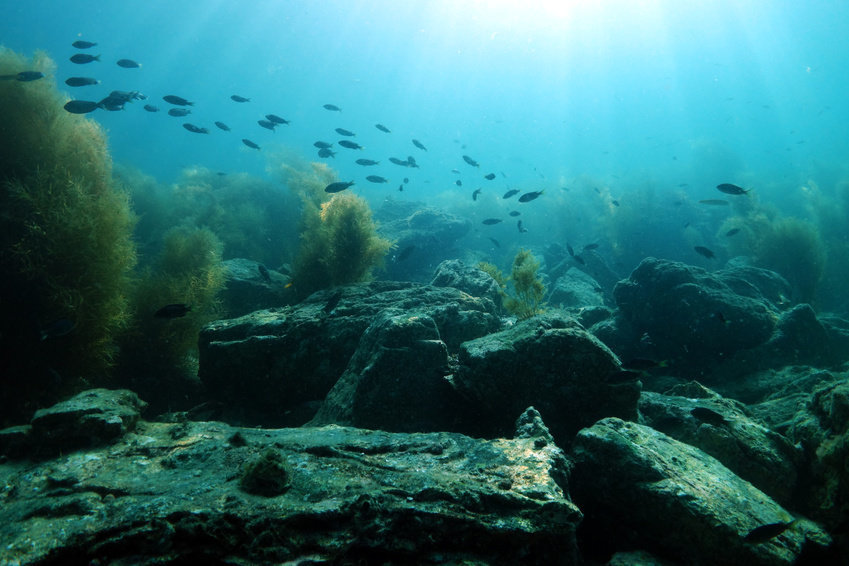11 Dec 2024

Tired Earth
By The Editorial Board

Like old-growth trees in a forest, old fish in the ocean play important roles in the diversity and stability of marine ecosystems. Critically, the longer a fish is allowed to live, the more likely it is to successfully reproduce over the course of its lifetime, which is particularly important in variable environmental conditions.
A new study by University of Washington scientists has found that, for dozens of fish populations around the globe, old fish are greatly depleted -- mainly because of fishing pressure. The paper, published online Sept. 14 in Current Biology, is the first to report that old fish are missing in many populations around the world.
"From our perspective, having a broad age structure provides more chances at getting that right combination of when and where to reproduce," said lead author Lewis Barnett, a UW postdoctoral researcher at the School of Aquatic and Fishery Sciences and the Joint Institute for the Study of the Atmosphere and Ocean.
In forestry, a tree farm with only 20-year-old trees may be healthy and productive, but the loss of old-growth trees should not go unnoticed. The giant trees have unique traits that support a number of animal and plant species and make for a diverse, robust ecosystem. In a similar sense, the same is true for old fish.
"More age complexity among species can contribute to the overall stability of a community," Barnett said. "If you trim away that diversity, you're probably reducing the marine food web's ability to buffer against change."
The designation of an "old fish" varies from species to species, depending on life history. Some types of rockfish might live to 200 years, while few herring live past age 10.
After female fish release eggs, many factors must align for a healthy brood to hatch and grow to adult size. Because the marine environment is so variable, species might go a whole decade between successful broods. Older fish in a population have more years to produce eggs, increasing the chance for success over time.
"In the marine world, the success rate of producing new baby fish is extremely variable," said co-author Trevor Branch, a UW associate professor of aquatic and fishery sciences. "I think of old fish as an insurance policy -- they get you through those periods of bad reproduction by consistently producing eggs."
In addition to having more opportunities to reproduce, older fish also behave differently than younger fish. As they age, some fish change what they eat and where they live in the ocean. They also take on different roles in the marine food web, sometimes becoming a more dominant predator as they get older, and bigger.
When you take old fish out of the mix, the diversity and stability of an ecosystem can suffer, the authors explain.
"Big fish are in a lot of ways different from smaller fish," said co-author Tim Essington, a UW professor of aquatic and fishery sciences. "Having that diversity acts as a hedge against risk and helps stabilize the system a bit."
The researchers looked at model output gathered from commercial and recreational fisheries and scientific observations that describe the status of fish populations over the years. In their analysis of 63 populations living in five ocean regions worldwide, they found that the proportion of fish in the oldest age classes has declined significantly in 79 to 97 percent of populations, compared with historical fishing trends or unfished figures, respectively. The magnitude of decline was greater than 90 percent in 32 to 41 percent of the groups.
This is mainly due to fishing pressure, the researchers say. In general, the longer a fish lives, the more encounters it has with fishing gear, and the greater the likelihood it will be caught. However, some environmental factors like disease and pollution might also contribute to the loss of old fish.
These findings could inform fisheries management, which often sets limitations based on the total weight of fish caught over a season without considering factors such as the size or age of a fish. The authors suggest fishing methods to protect young and old fish by prohibiting the harvest of fish below and above a specific size range. Other solutions include closing certain areas to fishing permanently, or rotating areas where fishing can take place each year to let fish grow older and bigger -- similar to agricultural crop rotations that allow the soil to recover between planting cycles.
Source : www.sciencedaily.com
Comment